Dear Patchers — Welcome to your Saturday long read.
Over the past couple of weeks, I’ve been spending time in three Black Country constituencies, trying to get a flavour of how general election campaigning is playing out locally. While the national media is focused on Starmer, Sunak, Farage, and Davey, the West Midlands has its own political stars: Morris, Ballinger, Longhi, Southall and so on. And if those names aren’t quite jumping off the page at you yet, well, you’ve come to the right place.
In the Black Country, Halesowen, Dudley and Stourbridge each have their distinct issues, characteristics, movers, shakers and — in some cases — feuds. In Halesowen, I came across apathy and electoral realpolitik in action; in Dudley, right-wing candidates furious that their odds of beating Labour could be reduced as they compete for the section of the electorate; and in Stourbridge, a politician who is refusing to be put off by the polling figures. Personally, I had my own frustrations with overly centralised party political communication channels. But dettered I was not! Today, we’re visiting Halesowen and Dudley, but do stay tuned for Part Two from Stourbridge next week.
Now, to the campaign trail!
Dan
Apathy in Halesowen: ‘Keir Starmer is just a slightly less vomit-inducing Tory’
The poet William Shenstone was born, educated and laid to rest in Halesowen. His literary endeavours earned him global recognition, but it was Shenstone’s dedication to beautifying The Leasowes — the estate he spent his later years holed up in, foregoing the cut-and-thrust of the world to instead turn its 57 hectares into a prime example of ‘the English Garden’ — where Halesowen can experience his landscaped legacy.
Like many consequential local sons and daughters across the UK, Shenstone’s name has lived on long after his death: a local school has a house named after him, two roads bear the same honorific and the town centre Wetherspoon is called The William Shenstone. It’s inside this pub, on the sunny Tuesday evening I visit, that the Halesowen locals best seem to be embodying Shenstone’s example of finding a sanctuary away from the world. Between the cheap drinks (£2.63 for a pint of Ludlow Gold), well-priced dinners and homely revelry, the brutal cut-and-thrust of the general election campaign feels a world away.
An old couple playing rummy are embraced by a neighbouring family out for dinner; the waitress running the floor hugs countless customers she clearly knows well; a local dad steps outside to chat with a younger lad drinking with a swarm of his college-age mates. I’m not surprised people want to keep this pub a politics-free zone. Eyes are averted the couple of times I try to bring the subject up. Indeed, the only political offering comes from the pub’s owner Tim Martin, inside the pages of his in-house magazine: “For a decade or more, politicians of all the main parties appear to be making policy ‘on the hoof’,” he writes, arguing for more pro-business legislation.
Outside the pub, I get more insight into what life is like in Halesowen. “I like living here,” says one local parent. “The local hospital, despite pressure, is welcoming, and there’s plenty of fun and safe places, especially nature areas, to take my kid.” But he voices concerns about public services. “I don’t want further tax cuts as you can’t rebuild a country by continually chipping away at the foundations,” he continues. “I’ll vote Labour because I’m a Labour member, but Keir Starmer is just a slightly less vomit-inducing Tory by my reckoning.” When I spend some time asking around the town, public services, particularly health and education, as well as council funding, are also brought up.
Enthusiasm for party politics does seem to be in short supply here, not for want of trying from the party. On Thursday, after launching his party’s manifesto in Manchester, Keir Starmer dashed back to spend time with local Labour candidates at the Halesowen Football Club. But around the town, there’s little party signage. It’s an area, according to 2021 Census data, with higher than average economic inactivity and deprivation. Yet there is still a lot of local pride — bunting with the Black Country heraldry crisscrosses many of the centre’s streets.

Given the general clamour for change at the national level, Conservative candidate James Morris is trying to focus on his local record. Morris was elected as MP for the former Halesowen and Rowley Regis seat in 2010, which makes up nearly three-quarters of the new Halesowen constituency created following boundary changes. “Notwithstanding national politics, I hope people see the last 14 years of local delivery I’ve helped,” he tells me, noting his campaigning to protect the green belt, campaigning for the Halesowen police station to stay open, winning Levelling Up funding and clamping down on car cruising on the busy Manor Way. “I’ve got the energy for this job still but I’m not naive [about the national polling figures for the Tories] and I can only focus on my role as a local candidate,” he adds. He’s previously tried to draw dividing lines with the Labour-led Sandwell Council, slamming them for, in his words, “incompetence, corruption and cronyism”.
Despite Morris’s bullishness, national polling suggests he will be gone come July 5th. The Financial Times’ election tracker currently predicts the Conservatives will lose the seat by a hefty 20 percentage points to Labour. But Morris points out that recent Conservative local election performances have been better than the national pollsters expected and that his campaign team has knocked on hundreds of doors. “The spirit within the election team is strong,” he adds.
Though Labour’s Alex Ballinger looks set to win, he’s also harder to get hold of. It appears to be the ex-marine and mental health charity founder’s first election as a candidate of any kind. The previous two elections in Halesowen and Rowley Regis were fought by ex-councillor Ian Cooper, but Ballinger was chosen for the seat by the party in February. Ballinger and I chat online, but he defers to the party comms administration when I ask for an interview. Here, several requests come to nothing before my deadline.
From Facebook, I can see he’s out and about in the area, taking selfies at local cafes, chippies and on the streets. Some of these door knocking sessions seem sparsely attended, with elected officials coming across from Birmingham to add to the numbers. I’d like to ask Ballinger about his anti-austerity stance that features on his website; Starmer said at Labour’s manifesto launch that there would be no return to austerity, yet experts predict that cuts will be necessary if the party is to stick to its focus on fiscal responsibility. How does Ballinger feel about that? It’ll have to wait until later in the campaign, I suppose.

That Halesowen appears to not be getting the most campaigning attention is electoral realpolitik in action, says Ryan Priest, the Lib Dem candidate, over the phone on his way back from an Ed Davey campaign stunt. “Politics is about targeting, and I’ll admit Halesowen is not a high-priority Lib Dem target seat,” he explains. “It’s the curse of the electoral system, but I doubt it's a Labour priority seat either.” He believes this feeds into the apathy I sense when I speak to voters. “We seem to know the Conservatives will lose, but from the voters we speak to, we don’t sense that people are excited about a Labour government either,” he adds.
That raises another possibility: that turnout might be pretty low here. In 2019, turnout fell (despite the Conservatives’ focus on Brexit, something that received strong backing here) and based on my visit, I’d wager it will fall again this time.
On one view, if people’s expectations of Labour are low, then perhaps it’s easier to meet them: there are no grand promises of “levelling up” being made. But if voters are making their choice based on who they dislike least — which my conversations seemed to suggest — then any loyalty to the party could be short-lived. “My priority is to end the Conservative austerity machine,” one voter tells me — hardly a ringing endorsement of what Labour have to offer.
Slugfest in Dudley: ‘What gives him the right to be the only right-wing candidate?’
Near the top of New Street is a bronze statue of Duncan Edwards, the talented local lad who made good. Edwards played football for Manchester United and England in the 1950s and was described as a generational talent, but his life was tragically cut short in the 1958 Munich air disaster. This memorial, once visited by Sir Bobby Charlton, stands as a point of civic pride.
Those I speak to in its shadow tell me there’s little else to be proud of now. In Dudley’s town centre, crisscrossing between New Street, Castle Street and the High Street, retail brands have left their lots and some have whitewashed their windows. What’s left are vape shops, cheap food outlets and businesses with the price in their name: ‘Discount Emporium’, ‘Pound Bakery’. Barely half the stalls in the local market are in use. “The market is dying,” one trader tells me. “It’s the same across the Black Country. We’re all struggling.”
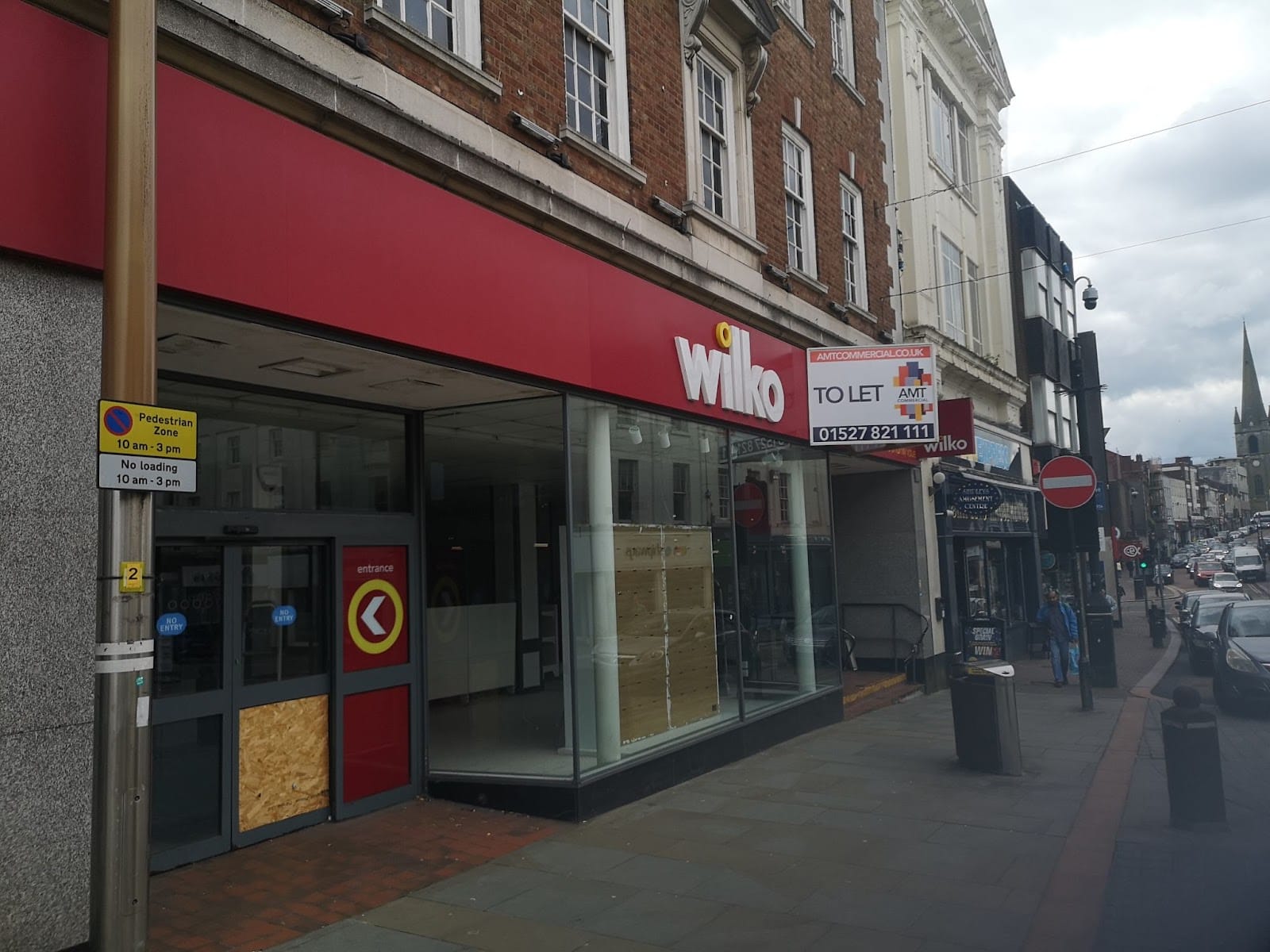
Dudley and its residents have been under the cosh lately. The council is reportedly on the cusp of going bust, despite already spending 10% less per person than other metropolitan boroughs, and a further review of spending on services from waste collection to leisure facilities is looming. Levels of social renting are much higher than the national average, there are higher numbers of people who have never worked and lower levels of those able to access the highest-paid professional jobs. Colton, who sells vapes and phones in a store which his family used to run as a bakery, tells me it was once better here, with good trade, but it feels like a race to the bottom with many local businesses losing money month on month. He looks out his shop’s front window at the nearly empty marketplace. Can any party change this, I ask? “They’re all the same, mate,” he replies. “I feel so let down — but I might vote for Reform.”
Reform is the only political poster I spot on my walk around the town centre, discounting those that Labour has plastered over its own election hub. One for Nigel Farage’s right-wing party, who are climbing in the polls, is plastered on the front of the shop Colton works in. “The gaffer put that there — he likes them,” Colton explains. It’s support like this that has encouraged Andrew Southall, a thirtysomething from Gornal, to stand as the Reform candidate for the newly formed Dudley constituency. The seat is made up of the whole of Dudley North, notionally held by Conservative Marco Longhi since 2019 (who won then by a thumping majority of 11,533), and a little bit of the old Dudley South constiuency. No-one is currently projecting Reform to win the seat, but Southall thinks he can cause a splash at least.
Over lunch in a cash-only shopping arcade cafe, Southall tells me he’s always had local support for his self-described libertarian views. “Even before my candidacy, I was getting messages from people I went to school with telling me to be a candidate,” he says. Inspired by what he describes as government interference during the pandemic, Farage’s rhetoric, and feedback from friends for the way he put his views across on internet debates, he says he’s been in campaign mode since last November. “I hear a lot about the small boats,” he says. “They’re in four-star hotels, it's unfair.”

Small boats haven’t cropped up in my own conversations in the area, with locals — at least the ones I talk to — concerned about being cut out of work due to online shopping, the long impact of the pandemic on the economy, and how much less dynamic Dudley now seems to be. But vox pops aren’t a statistical sample, and Dudley’s last MP, Marco Longhi, has certainly made a big issue of immigration; taking on his government over the controversial Rwanda Bill, telling asylum seekers not to come to his MP surgery, and blaming immigrants for fly-tipping. It’s unlikely he would have done so if he thought that immigration wouldn’t play well with the local electorate that Southall is also trying to convince. (Not that immigration is Southall’s only focus; he talks to me about more visible local issues, such as car parking in town and the need to incentivise new businesses to open. “It’s not okay that we’ve got empty shops,” he says.)
But what seems to make Southall most impassioned is not an issue, but a person: his Conservative opponent, Longhi. “I’ve had complaints about him,” Southall says. “He blocks people on Facebook. He tries to manufacture his Facebook so he looks like he’s the people’s hero.” Longhi made national news when he asked Farage to stand down candidates like Southall so that they don’t split the right-wing vote. Southall took it very personally. “I was absolutely incensed when I read that,” he says. “For him to go above my head and ask for me to be stood down — why can’t you debate me? What gives Marco the right to think he should be the only right-of-centre candidate?” I want to ask Longhi about this, but after half-a-dozen messages with no reply, I give up. I suspect he’s either already landed the hit he wanted, or doesn’t want to give Reform any more air time (the Farage-helmed party, since my time in Dudley, has, according to a YouGov poll, surpassed the Conservatives in national vote share).
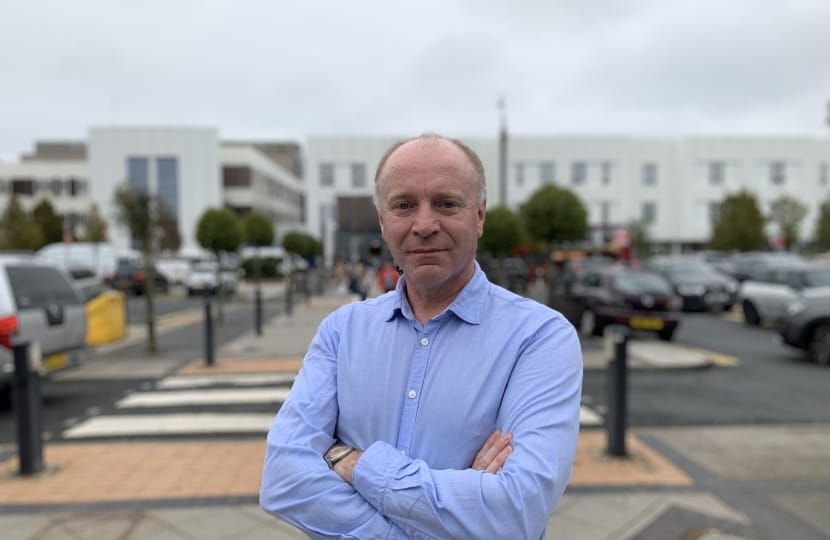
While the gloves may be off between the right-wing candidates, it is the third big hitter in the Dudley campaign that is projected to get a knockout win here: Labour. This is despite Southall already getting BBC airtime, and Longhi’s historic majority. Labour clearly covets the seat. Party grandee Lord Austin stood down in 2019, and Keir Starmer made an obvious pitch to the Dudley electorate when he launched the party’s local election campaign here earlier in the year. The area is often seen as a bellwether for the national mood; the recent fight for council supremacy saw a hung result between red and blue, and even when Labour used to win in the general elections here, the vote was often on a knife edge.
To secure victory, the party has put up Brummie Sonia Kumar as their candidate. She has previously run (unsuccessfully) for the council in south Birmingham, and works in the NHS as a physiotherapist. While there are countless photos of her out and about on the campaign trail, and a couple of her campaigners in town that I see for myself, there’s not much I can find out about what she is standing on outside of her retweeting Labour Party pledges. “I am not a career politician,” she told The Dudley News on her nomination. “I have chosen the path of politics wanting to build policy which works for everyone in society. I want to win for all of us and I will fight for Dudley in Parliament.” It’s a hyper-local pitch — but there don’t seem to be many hyper-local policies.
Wanting to find out more — Kumar is, after all, expected to win the seat comfortably — I get in touch. She seems up for a chat, but tells me I have to go via the party press machine. After some back and forth, and a couple of prompts when the email chain goes quiet, I get a response that tells me it can’t happen before my deadline, but might do after. A high-ranking Labour insider tells me this is typical. “Keir Starmer has changed the Labour Party so that it is so centrally run that candidates are either stopped from speaking to journalists or are too scared to in case they say something that the Leadership disapproves [of],” they say.
Among the eight political runners and riders for Dudley, Kumar is still predicted to win, and win big. As such, The Dispatch hopes to speak to her before election day, as there are real issues in the area that need addressing, not least the cost of living crisis. The last thing I hear before I leave Dudley is from a mum, taking her young daughter for food. “I only have two shifts a week, y’know,” she says. “I need more.”
Correction: An earlier version of this article suggested Ian Austin lost his former seat in 2019. In fact, he resigned from the Labour Party and Melanie Dudley stood as Labour’s candidate for Dudley North in the 2019 general election. The article has been corrected.



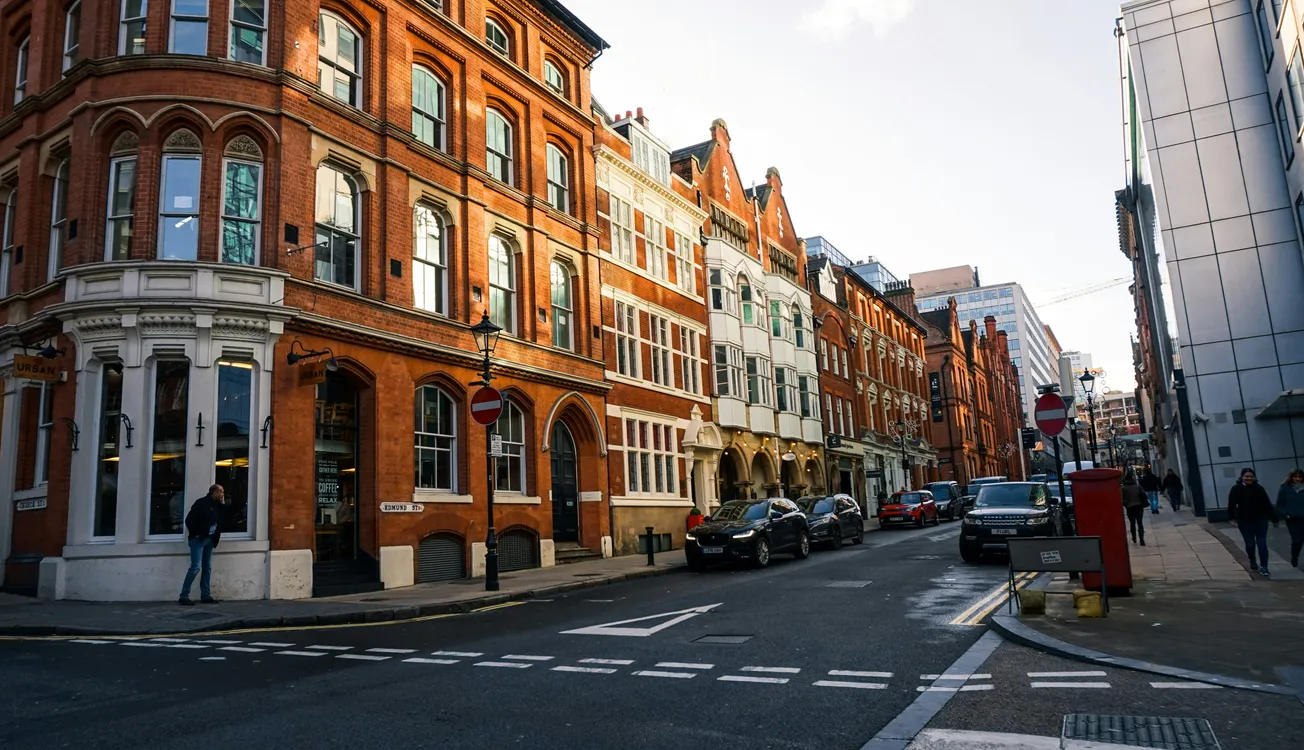
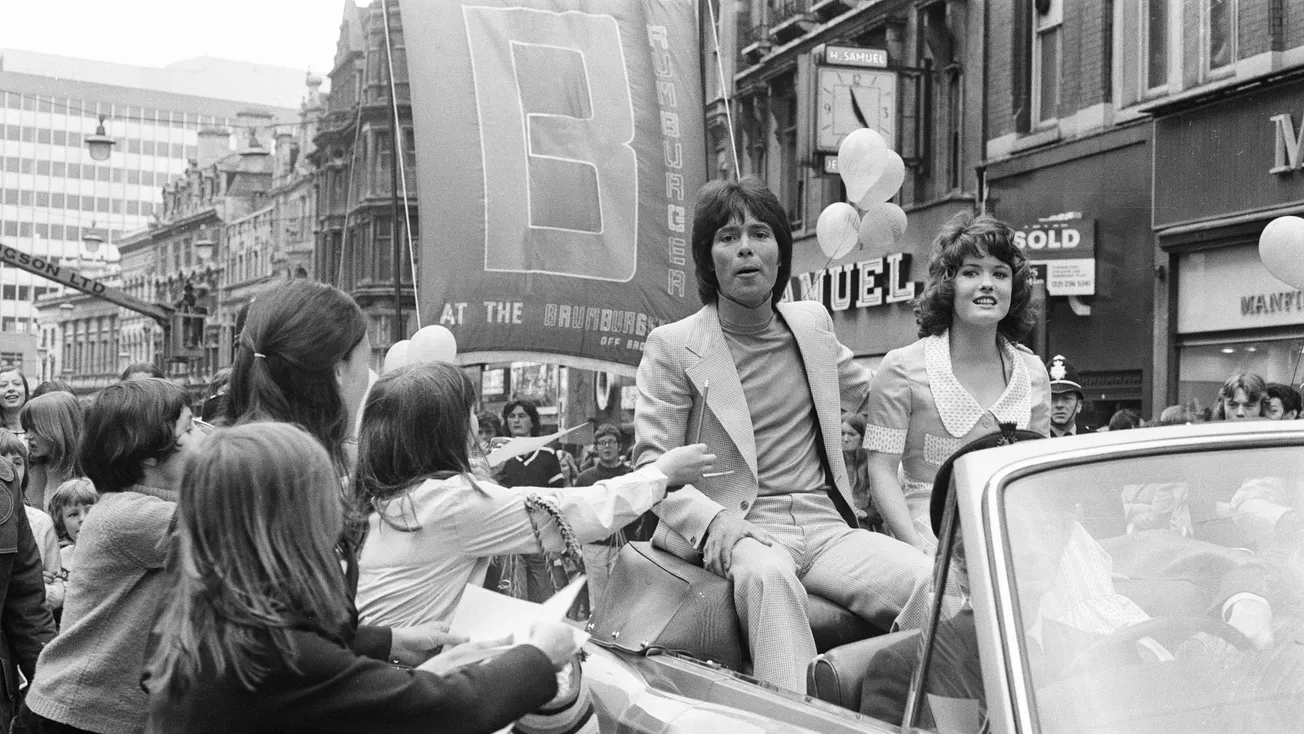
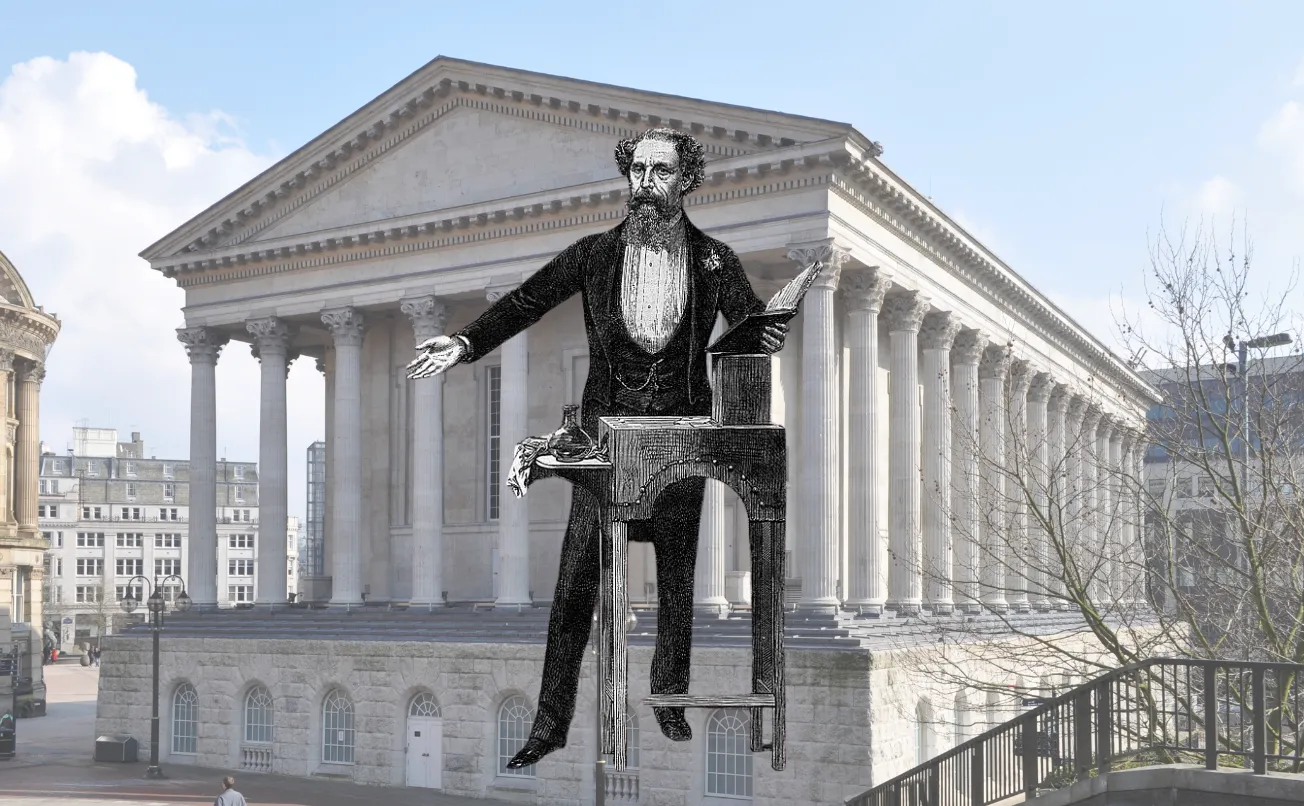
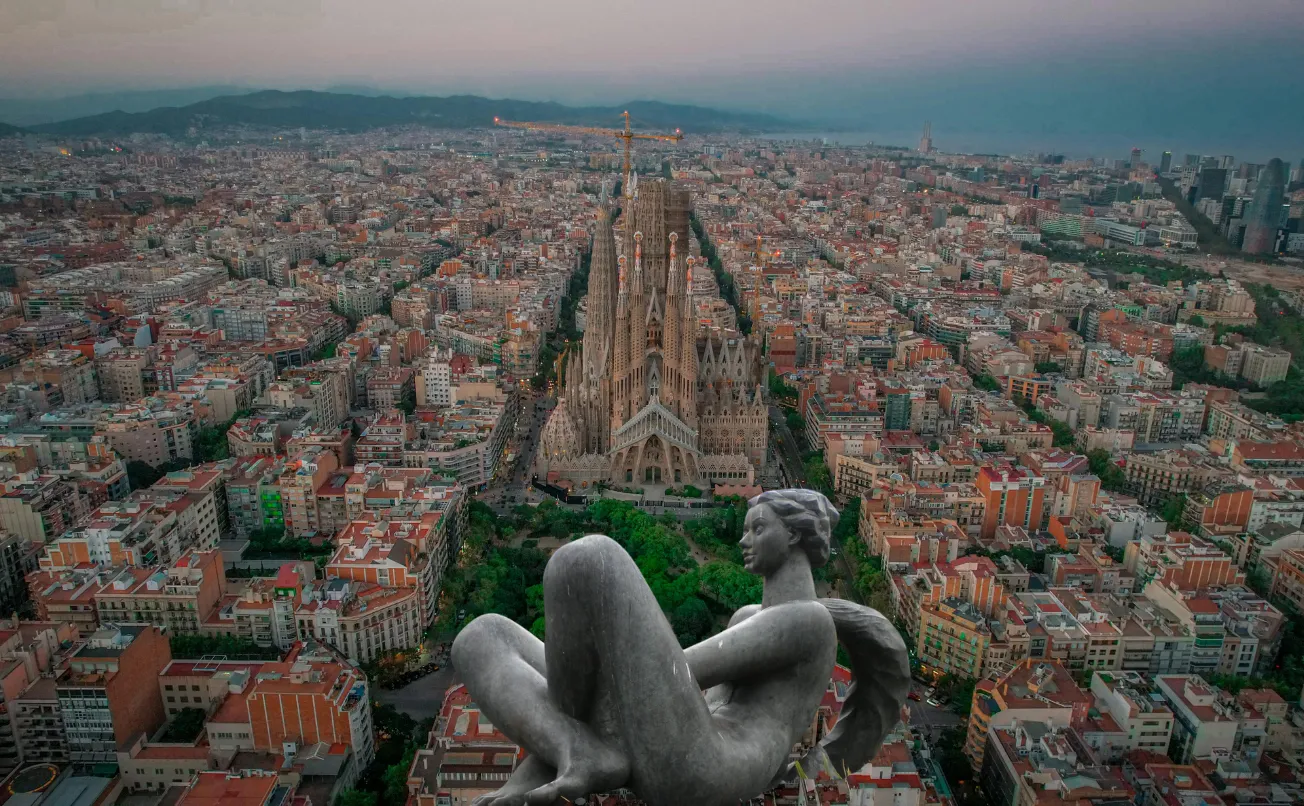

Comments